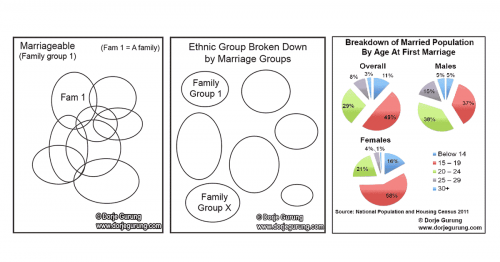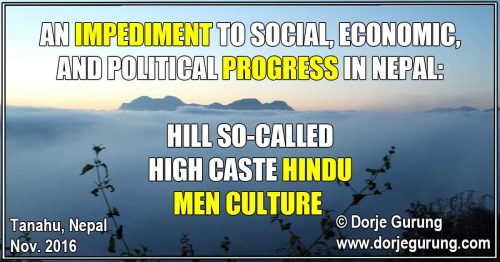Caste System Fostered and Propped up Groupism in Nepal Corrals People into Small Social Circles Part II
The "brilliance" of the caste system is what Ambedkhar characterized as its inherent "graded inequality."
In Nepal, the gradation can be found not just between the five castes, but also between the ethnic groups, between communities that make up an ethnic group, within communities and therefore between individuals.
And because social status is valued so much, the gradation has determined who you could marry and form a familial alliance with, which in turn dictates who you socialize with the most. Were inter-caste marriage the norm, the caste system would break down.


